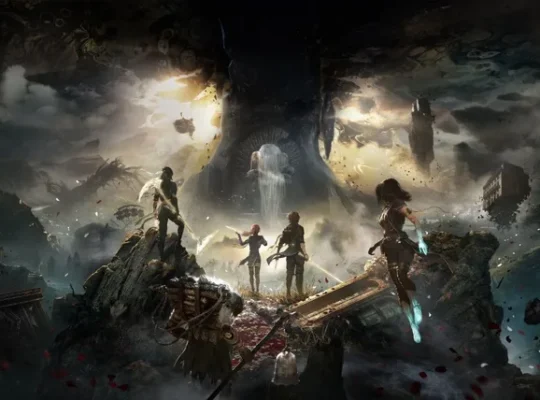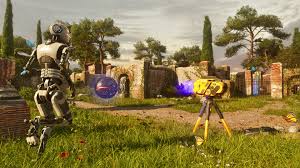Pros of Aratar
- Innovative Gameplay Mechanics: Aratar introduces a set of innovative gameplay mechanics that set it apart from traditional games. For example, it might integrate real-time strategy elements with role-playing features, allowing players to both manage resources and develop characters deeply. This hybrid approach keeps the gameplay fresh and engaging.
- Stunning Graphics and Visuals: The game boasts high-quality graphics and impressive visual effects. With a detailed and vibrant world, players are more likely to feel immersed in the game’s universe. The visual storytelling aids in deepening the connection between the player and the game’s narrative.
- Dynamic Storytelling: Aratar might excel in dynamic storytelling, where player choices significantly influence the game’s outcome. This feature adds to the replayability of the game, as players can explore different paths and outcomes, enhancing the overall game experience.
- Strong Community and Multiplayer Features: If Aratar includes robust multiplayer features, it can foster a strong community of players. Multiplayer modes that encourage cooperation or competition can greatly extend the game’s lifespan and appeal.
- Regular Updates and Developer Support: Ongoing support from the developers in the form of regular updates, bug fixes, and new content can keep the game relevant and enjoyable for a long time. This is crucial in maintaining an active player base and keeping the game dynamic.
Cons of Aratar
- Steep Learning Curve: The innovative mechanics of Aratar, while a strength, can also be a barrier. New players might find the game difficult to get into, especially if it lacks a comprehensive tutorial or if the mechanics are too complex compared to more mainstream games.
- Performance Issues: With high-quality graphics and complex gameplay systems, Aratar might suffer from performance issues, especially on lower-end systems. This could limit its accessibility to players who do not have advanced hardware.
- Potential for Pay-to-Win Dynamics: If Aratar includes microtransactions, there’s a risk it could adopt a pay-to-win model, where players can buy success through in-game purchases, potentially alienating those who cannot or choose not to spend extra money.
- Time Commitment: Games with rich content and deep systems often require significant time investment to fully appreciate all their features. This high time commitment might deter casual gamers who prefer games that are easier to pick up and play.
- Bug Issues and Balancing: Complex games like Aratar can be prone to bugs and balance issues, especially shortly after release. These issues can frustrate players and detract from the overall experience until they are resolved.
In conclusion, Aratar presents a fascinating blend of challenges and innovations. The game’s success likely hinges on how well it balances its advanced features with user accessibility and how responsive the developers are to the community’s feedback. For gamers seeking depth and involvement, Aratar could be a rewarding experience, though it may not cater to everyone’s tastes or hardware capabilities.












